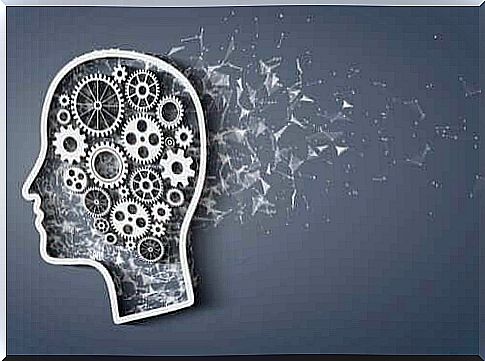The Term Metacognition: Components And Properties

Although the concept of metacognition is complex, you can summarize it as knowledge of the knowledge itself. In other words, the ability to know and regulate how you think and what the conscious control of cognitive processes such as memory, attention and comprehension involves.
The study of the concept of metacognition began with epistemologist and cognitive psychologist J. Flavell and English anthropologist and psychologist Gregory Bateson. The latter focused his research on metacognition in animals.
Metacognition is higher level thinking where you are the object in question. This is where the prefix “meta” comes from. Metacognition allows you to evaluate leadership processes and make changes to improve yourself.
Let’s take a look at a few examples that make it easier to understand. Let’s say you read something and suddenly stop to ask yourself if you have understood what you are reading. You realize you did not, so you read it again. That is the concept of metacognition. Another example is when you try to solve a problem and realize that the mental strategy you are using is not working, so you switch to another.
The two sides of the term metacognition
One important thing you should understand about metacognition is that it is a versatile concept. You can discuss the concept of metacognition from different perspectives. One way is to understand it from the content of the metacognition, and the other method is from the perspective of the metacognitive process.
This is why there is a difference between metacognition as metacognitive knowledge and metacognition as metacognitive control. We will now explain these two perspectives and what they mean.

Metacognitive knowledge
This term refers to what people know about their own and other people’s cognitive processes. This perspective refers to the aspects of the content or knowledge. It is declarative knowledge that you practice when you think about your intellectual capacity, learning ability or memory.
This type of knowledge has the following characteristics:
- It is relatively stable, as an intuitive model of knowledge and how knowledge works.
- Observable and communicable (you can access the knowledge to reflect on it and talk about it).
- Error. It can lead to wrong reasoning and wrong ideas.
- Late development. This type of knowledge emerges in the final stages of development because it requires the ability to create abstractions.
Metacognitive knowledge consists of three components:
- Personal variables. The knowledge of yourself as a thinker and a teacher, that is, of your abilities and experiences when you perform different tasks. This is, for example, thinking about how you are better at math than in the gym, or that you are better at remembering names than your friend.
- Task variability. Refers to the knowledge you have about goals and all the qualities associated with their difficulties. For example, knowing that studying requires much more effort than just reading a book.
- Strategic variables. Refers to the knowledge of the means that can help you perform a task. It involves understanding the declarative, procedural and conditional tasks of current strategies.
Metacognitive control
Metacognitive control refers to the active supervision and subsequent regulation and organization based on the processes that work at a given moment. In other words, it refers to the ability to be aware of possible mistakes and then act to reduce them. It is important to understand that the cognitive process plays a role before, during and after the task in question.
Metacognitive control has the following properties:
- It is not stable. Metacognitive control is associated with cognitive activity, which means that it depends on the situation and the specific task.
- It is relatively independent of age. Experts believe that when metacognitive processes are developed, age is not an influential variable.
- It is largely a procedural and subconscious process. As a result, many aspects of metacognitive control are inaccessible and non-communicable.
The main components of metacognitive control are:
- Planning. Shows to make a strategic plan before you start with a task. It involves organizing resources and strategies while keeping the end goal in mind.
- Supervision. Consists of revising and adjusting your actions while performing a task so that you can get closer to your goals. This involves an interactive process that is twofold: a basic reasoning (identifying errors) and top-down reasoning (correcting errors).
- Evaluation. This is the evaluation of the final results to assess corrections and strategy changes for future tasks.

Conclusion
Metacognition is a crucial part of information processing. You can actually observe that metacognition plays a role in most of the tasks you perform.
You must also understand that there is a very fine line between cognition and metacognition, which makes it seem as if there are two dimensions of the same place instead of static categories.
Doing more research on metacognition will help us better understand human thinking and reasoning, which is very important in many areas (such as education). This is because understanding how the human mind works will help us get better.









